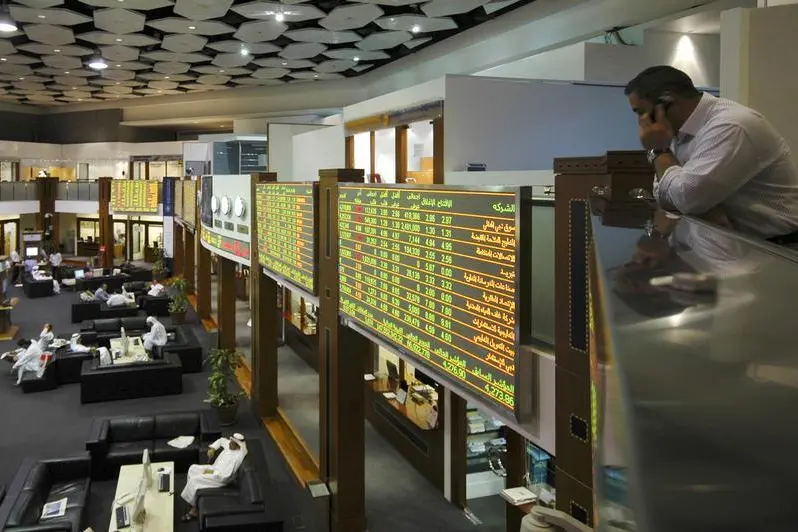PHOTO
Most stock markets in the Gulf ended lower on Thursday, as selling pressures and declining oil prices pushed the markets down to a certain extent.
Oil prices, a key catalyst for the Gulf's financial markets, eased to $96.23 a barrel amid fears of a demand slowdown, after a build in U.S. crude and gasoline stocks sent prices to multi-month lows in the previous session.
Crude prices have soared in 2022 to their highest since 2008, climbing above $139 a barrel in March after the United States and Europe imposed sanctions on Russia over its invasion of Ukraine. Prices have since eased to below $100 a barrel as soaring inflation and higher interest rates raise fears of a recession that would erode demand.
Dubai's main share index fell 0.5%, with top lender Emirates NBD losing 2.2% and blue-chip developer Emaar Properties dropping 0.9%.
In Abu Dhabi, equities lost 0.3%, hit by a 1.6% fall in the country's biggest lender First Abu Dhabi Bank. The Abu Dhabi stock market was volatile with declining oil prices pulling the main index down, said Fadi Reyad, market analyst at CAPEX.com. "The market could see more price corrections as investors secure their gains."
The Qatari benchmark closed 0.1% lower, driven down by a 2.6% fall in Mesaieed Petrochemical. Saudi Arabia's benchmark index, however, ended flat. Outside the Gulf, Egypt's blue-chip index jumped 5.3%, trimming year to date losses to 16%. According to Reyad, the Egyptian bourse saw an increase thanks to the expectations of improving conditions in grain deliveries and inflation. "However, it remains exposed to selling pressures from local and international investors."
The Egyptian benchmark hit its lowest in nearly six years last month as the country has come under pressure because of a sharp slide in foreign portfolio investor holdings and rising costs of key commodity imports, especially since Russia's invasion of Ukraine.
(Reporting by Ateeq Shariff in Bengaluru, Editing by Bernadette Baum)




















